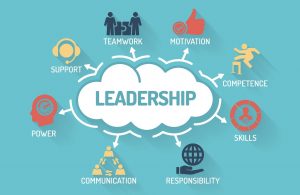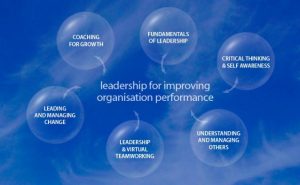

THE very important topic of “Why Leadership Matters” is a subject that is central to our ability to thrive in a world of increasing complexity, hyper-competition, and accelerating change.
We are truly living in a VUCA world. I have had the privilege to listen to John Maxwell twice during his visit to Zimbabwe. There were two profound statements that he made, which have lodged in my brain and have guided me in my leadership journey.
The 1st statement was “Everything rises and falls on Leadership”. Let me repeat it “Everything rises and falls on Leadership”. Leadership matters for several reasons, as effective leadership can have a significant impact on individuals, organisations, and society as a whole.
Let’s start with the family unit — as a parent, a sibling, a son, or a daughter you are a leader, and your leadership behaviours — good or bad have a lasting impact on the family unit. You can see the issues that arise from a family unit that has real problems or is broken.

Leadership is the most fundamental competence in human life.
So, if you want to produce a society that rejects violence, respects the elderly and the rule of law, and behaves with integrity and high ethical standards, it has to start from the home. In my view, effective leadership at home is the foundation upon which societies are built.
Now let’s look at it outside the family unit — from the companies you work at or interact with, NGOs, parastatals, various institutions, and countries. Their success or failure is determined by the quality of the leadership resident in those institutions.
There are lots of examples of countries and organisations globally, where leadership has made a huge difference. Nelson Mandela’s unique leadership prevented South Africa from slipping into chaos after their elections. We all admire his leadership. The second profound statement that John Maxwell articulated was the “law of the Lid” — which states that the performance of any organisation will rise only to the level of leadership present in the organisation.
What he is essentially saying in simple terms is that the success of any organisation is tied to the quality/ type of leadership prevailing in the organisation.
There are other reasons for the success of the organisation — right industry, luck, right place at the right time, but ultimately the long-term sustainability and success are correlated to the level of its leadership. If we take a look at the companies that were on the Fortune 500 list, 20 years ago and look at them today, you will see a completely different picture.
This tells you that nothing stays the same — technology changes, consumer preferences alter, demographic shifts, geopolitical issues, economic turmoil, climate issues, and others. Only the companies that have the right leadership can navigate through the seismic changes that are happening in our world today and will continue to happen.

Now coming closer to home, we have experienced significant economic challenges. We all know of numerous companies that have either closed down or downsized their operations. However, there are quite a few companies that have managed not only to survive, but thrive under these conditions such as Delta, Innscor, Hippo Valley, Masawara, and other entities.
At Masawara where I was the chief executive of the Insurance Cluster, we expanded into the region with operations in Botswana, Tanzania, Uganda, and Cameroon. What do you think is the primary rea son for those who failed and those who succeeded — it boils down to their qual ity of leadership. We were all facing the same macroeconomic challenges, we not only thrived here but also expanded in the region.
What are the key traits of a great leader?
John Maxwell says “Why you lead and the way you lead is important. They define you, your leadership, and ultimately your contribution”. The heart of leadership is serving others first, before yourself. Here’s the problem: Most organisations operate from a hierarchical leadership structure. Leaders “move up” the ladder in an organisation, and, once there, see themselves “above” their team.
Despite its trending status — as well as its undeniable success — most people do not equate leadership to service. They think it is about power and authority. Effective leadership requires a com bination of various traits and qualities that enable a leader to inspire, motivate, and guide their team or organisation toward success.
I would like to mention a few key leadership traits that resonate with me and have helped me in my career. This does not mean that the other traits are not important. First and foremost is integrity. Integrity – Trust is crucial in leadership, and integrity is the foundation of trust. Leaders with integrity are honest, ethical, and consistent in their actions and decisions.

Everything rises and falls not on the leaders, but on the leadership.
Don’t take shortcuts when it comes to integrity. My appeal to you is to become a person of uncompromising integrity. It pays off in the long run and I have experienced it in my career. Confident humility – Confidence and humility are often seen as opposites.
But if you reflect on the leaders that you admire most, chances are that they embody both of these qualities in tandem. I call it confident humility. Confident humility is being secure enough in your expertise and strengths to admit your ignorance and weaknesses Listen first – listen with your ears, eyes, and heart.
Not sure if you have heard of the concept of the talking stick. The Talking stick, used by Native American cultures, is an ancient and powerful “communication tool” that ensures a code of conduct of respect during meetings is followed.
The person holding the stick, and only that person, is designated as having the right to speak and all others must listen quietly and respectfully. Once that person has finished speaking the next person to speak will be given the talking stick.
How many times in meetings and conversations do you or other people get interrupted before they or you have finished what you wanted to express? It is a real problem – we cannot wait to give our input before the other person has had their chance.
Deliver the results – establish a track record of results. Accomplish what you are hired to do. Strong relationship skills – develop long and meaningful relationships. It takes time and effort. Continuous learning – never stop learning. Be a student all your life. On my emails next to my signature is an Italian phrase called “ancora imparo’ penned by Michaelangelo in his 80s– which means I am still learning.
I make sure that I take courses, attend seminars & and conferences, read books and articles, and listen to audio books. You need to “out-think” the competition. Alvin Tofler a futurist said, “The illiterate of the 21st century will not be those who cannot read and write, but those who cannot, learn, unlearn and relearn”.
Emotional Intelligence – Leaders with emotional intelligence can understand and manage their emotions and those of others, enhancing interpersonal relationships and team dynamics. At senior levels, EQ is more important than IQ.
I have dealt with leaders with low EQ and witnessed the negative impact on their organisation. Resilience – Leadership often involves facing setbacks and obstacles. Resilience enables a leader to bounce back from failures, learn from them, and keep moving forward.
We have endured numerous obstacles and setbacks and have managed to develop resilience by operating in this environment. Develop other leaders so you create a pool of leaders for the future. Are you creating leaders who are better than you or are you feeling secure in the knowledge that you are the smartest person in the room? You will not create a sustainable organisation if you do not develop other leaders.
Whether you are a business executive, a soccer coach, a classroom teacher, a volunteer coordinator, a parent, an entrepreneur, or a pastor — whichever one you are one thing remains true: You are a leader and it is not in the title on your business card or your email signature. So, to all of you leaders, strive to become a great leader who can make an impact and leave a mark in whatever field you are involved in. You can do it. By Mustafa Sachak
• Sachak is a renowned leader with extensive experience in leadership, business transformation, strategic partnerships, and the insurance sector at large. Currently, he is the head of leadership development and customer experience at Masawara Group